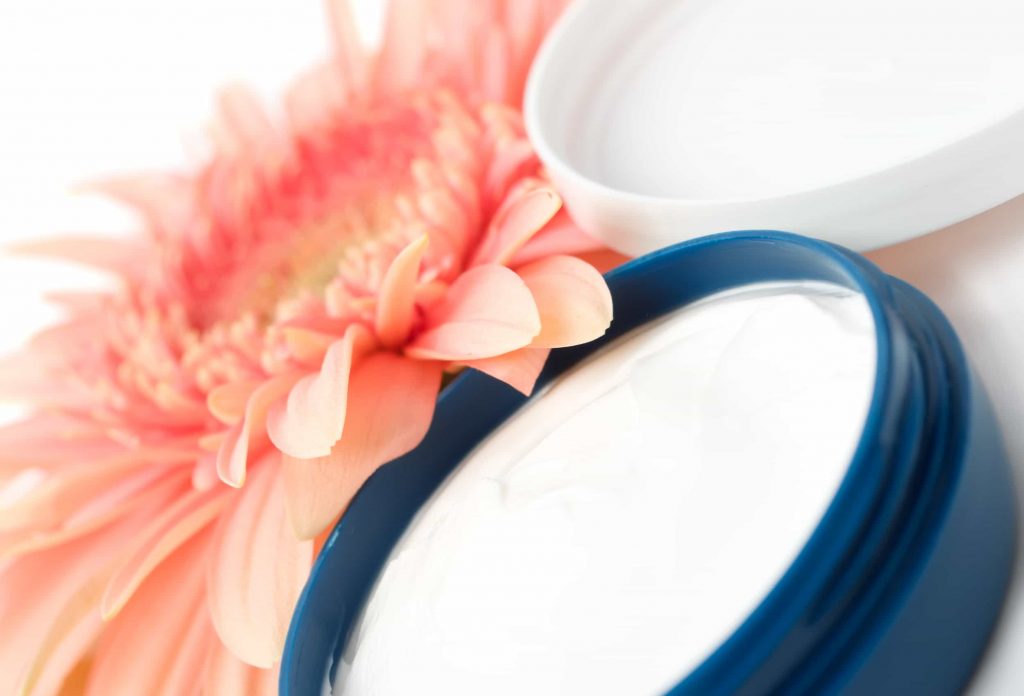Dry skin in winter is a common occurrence. It can be caused by age, our occupation during the day, certain skin diseases can cause dry skin, or, in the case of winter, the dryer air.
Severely dry skin can lead to other problems, which is why it is important to ensure your skin is healthy and well moisturised all through winter. Dry skin should be examined by a dermatologist, as this can often be the start of dermatitis (eczema).
Understanding dry skin that’s associated with the changing seasons helps us to treat the condition effectively, or better yet, prevent it from occurring in the first place.
Sign and symptoms of winter-associated dry skin
Dry skin often feels itchy, scratchy, and irritated. Dark-skinned individuals may experience an ashy appearance on the skin, with flaking that is very visible. If you find yourself experiencing these symptoms more severely during winter, your skin might be losing moisture in the dry air. Dry, cracked lips are also a sign that your skin does not have enough moisture, and severely dry skin may crack and even bleed.
Cracked skin is not only painful and uncomfortable, but it is also a health risk. The skin acts as a defence system against bacteria and unwanted foreign matter entering our bodies. When that barrier is broken, it makes the body vulnerable to infection and bacteria.
It is of utmost importance that the dryness is treated so that the cracks may heal and so the skin can continue to serve this vital function, keeping the body safe and protected.
Treating dry skin

Dr. Khoza will examine the skin to determine whether it is just winter dryness, or whether it could be the start of dermatitis. Thereafter, your lifestyle will be assessed. These factors each need to be considered when we approach a treatment plan that will be effective and long-lasting.
Tips for dealing with eczema and dryness
Eczema is a difficult condition to live with, as the inflammation and itch can become overpowering and exasperating. Moisture is a key factor in managing the condition.
- Moisturise twice daily.
- Use skincare products that contain no harsh chemicals, additives, dyes, or fragrances. Some people find coconut oil to be beneficial.
- Avoid extreme temperatures, very hot baths can cause your skin to lose more moisture.
- Sunblock should be applied religiously, each day.
- Have yourself tested for food allergies to rule out any triggers.
Replenish the skin’s moisture
You will need to start following a rigid skin moisturising protocol. Moisturising the skin frequently throughout the day is essential. Lotions, creams, oils and products recommended by a dermatologist will be the best. In severe cases, you may be required to use a specific moisturiser containing urea or lactic acid. These compounds have been found to help the skin retain moisture.
Medication
If you come to see Dr. Khoza and your dry skin condition is advanced and severe, we may put you on some topical medications. A corticosteroid (which is similar to cortisone), can be a great way to relieve the redness, itching, and irritability. The most important factors, however, will be to find the cause of the extreme dryness (lifestyle etc) and ensure you apply a moisturiser several times per day. Some of the lifestyle changes you can make at home include:
1. Avoiding extreme temperatures
Dr. Khoza says “being in the water for a long time and using hot water is extremely drying to the skin. Keep your baths and showers short and make sure you use warm, not hot, water.”
Dry skin is sometimes exacerbated by the heat of the water. It washes away the natural oils on our skin. These oils play an important role in ensuring we retain moisture in our skin. The heat also encourages evaporation, helping the moisture escape out of your pores.
2. Dry skin needs gentle skincare products
Certain skincare products may exacerbate moisture loss in skin. Shaving creams, soaps, cleansers, and astringent products that contain alcohol and antibacterial additives will contribute to dry skin. Please consult Dr. Khoza to establish which products are suitable for your skin type during the winter.
3. Dry skin and indoor heaters
Heaters have an intense drying effect on the air, which in turn draws the moisture out of your skin. If you find the winter chill too intense, add a humidifier to the room you have your heater in, to restore the balance of moisture in the air.

Winter skin that shines with life and lustre
Facing winter with new life and vigour starts with healthy skin. Good habits at home can boost the amount of moisture the skin retains, and ultimately, its ability to defend itself and give you a glowing complexion. Give your skin the best defence against dryness this winter. Book a consult with Dr. Khoza, we’ll help you to face the day with confidence.


